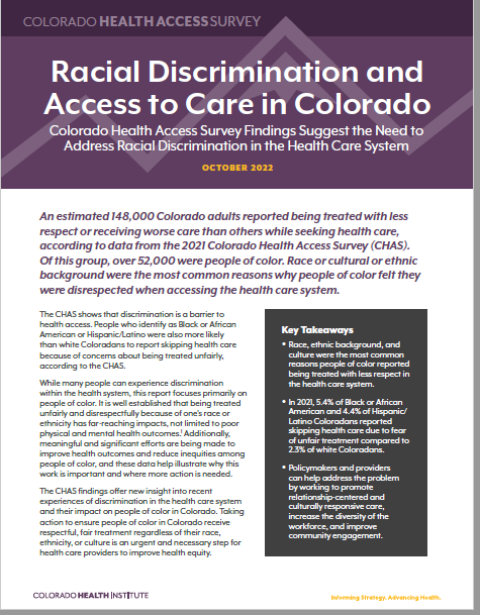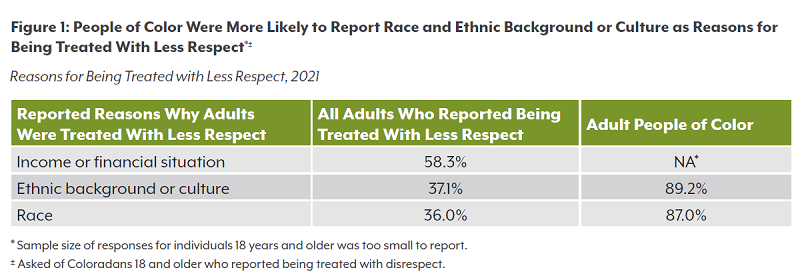The CHAS shows that discrimination is a barrier to health access. People who identify as Black or African American or Hispanic/Latino were also more likely than white Coloradans to report skipping health care because of concerns about being treated unfairly, according to the CHAS.
While many people can experience discrimination within the health system, this report focuses primarily on people of color. It is well established that being treated unfairly and disrespectfully because of one’s race or ethnicity has far-reaching impacts, not limited to poor physical and mental health outcomes.(1) Additionally, meaningful and significant efforts are being made to improve health outcomes and reduce inequities among people of color, and these data help illustrate why this work is important and where more action is needed.
The CHAS findings offer new insight into recent experiences of discrimination in the health care system and their impact on people of color in Colorado. Taking action to ensure people of color in Colorado receive respectful, fair treatment regardless of their race, ethnicity, or culture is an urgent and necessary step for health care providers to improve health equity.
Health and Discrimination
Research indicates that experiences of discrimination can lead to a higher mortality rate, mental illness, cancer, hypertension, cardiovascular disease, obesity, and risky lifestyles.(2)
Data from the CHAS also aligned with that research: Coloradans who skipped care due to fear of unfair treatment were much more likely to report poor health.
Coloradans who skipped care due to fear of unfair treatment were more likely to report poor or fair general health compared with those who did not skip care (41.2% compared with 11.2%). A similar trend was seen in poor mental health. Those who skipped care due to fear of unfair treatment were three times as likely to report poor mental health compared with those who didn’t skip care (46.6% compared with 15.6%).




